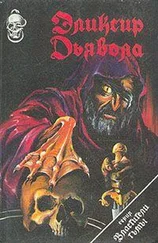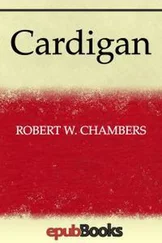Роберт Чамберс - A Young Man in a Hurry
Здесь есть возможность читать онлайн «Роберт Чамберс - A Young Man in a Hurry» весь текст электронной книги совершенно бесплатно (целиком полную версию без сокращений). В некоторых случаях можно слушать аудио, скачать через торрент в формате fb2 и присутствует краткое содержание. Год выпуска: 2014, Издательство: epubBooks Classics, Жанр: Классическая проза, на английском языке. Описание произведения, (предисловие) а так же отзывы посетителей доступны на портале библиотеки ЛибКат.
- Название:A Young Man in a Hurry
- Автор:
- Издательство:epubBooks Classics
- Жанр:
- Год:2014
- ISBN:нет данных
- Рейтинг книги:5 / 5. Голосов: 1
-
Избранное:Добавить в избранное
- Отзывы:
-
Ваша оценка:
- 100
- 1
- 2
- 3
- 4
- 5
A Young Man in a Hurry: краткое содержание, описание и аннотация
Предлагаем к чтению аннотацию, описание, краткое содержание или предисловие (зависит от того, что написал сам автор книги «A Young Man in a Hurry»). Если вы не нашли необходимую информацию о книге — напишите в комментариях, мы постараемся отыскать её.
A Young Man in a Hurry — читать онлайн бесплатно полную книгу (весь текст) целиком
Ниже представлен текст книги, разбитый по страницам. Система сохранения места последней прочитанной страницы, позволяет с удобством читать онлайн бесплатно книгу «A Young Man in a Hurry», без необходимости каждый раз заново искать на чём Вы остановились. Поставьте закладку, и сможете в любой момент перейти на страницу, на которой закончили чтение.
Интервал:
Закладка:
Around the bend in the road his house stood all alone, a small, single–storied cottage in a tangled garden. He passed in at his gate, but instead of unlocking the front door he began to examine the house as though he had never before seen it; he scrutinized every window, he made a cautious, silent tour of the building, returning to stare again at the front door.
The door was locked; he never left the house without locking it, and he never returned without approaching the house in alert silence, as though it might conceal an enemy.
There was no sound of his footfalls as he mounted the steps; the next instant he was inside the house, his back against the closed door—listening. As usual, he heard nothing except the ticking of a clock somewhere in the house, and as usual he slipped his revolver back into the side pocket of his coat and fitted a key into the door on his left. The room was pitch dark; he lighted a candle and held it up, shading his eyes with a steady hand.
There was a table, a printing–press, and one chair in the room; the table was littered with engraver's tools, copper plates, bottles of acid, packets of fibre paper, and photographic paraphernalia. A camera, a reading–lamp, and a dark–lantern stood on a shelf beside a nickel–plated clock which ticked sharply.
The two windows in the room had been sealed up with planks, over which sheet iron was nailed. The door also had been reinforced with sheet–iron. From a peg above it a repeating–rifle hung festooned with two cartridge belts.
When he had filled his lamp from a can of kerosene he lighted it and sat down to the task before him with even less interest than usual—and his interest had been waning for weeks. For the excitement that makes crime interesting had subsided and the novelty was gone. There was no longer anything in his crime that appealed to his intellect. The problem of successfully accomplishing crime was no longer a problem to him; he had solved it. The twelve months' work on the plate before him demonstrated this; the plate was perfect; the counterfeit an absolute fac–simile. The government stood to lose whatever he chose to take from it.
As an artist in engraving and as an intelligent man, Helm was, or had been, proud of his work. But for that very reason, because he was an artist, he had tired of his masterpiece, and was already fingering a new plate, vaguely meditating better and more ambitious work. Why not? Why should he not employ his splendid skill and superb accuracy in something original? That is where the artist and the artisan part company—the artisan is always content to copy; the artist, once master of his tools, creates.
In Helm the artist was now in the ascendant; he dreamed of engraving living things direct from nature—the depths of forests shot with sunshine, scrubby uplands against a sky crowded with clouds, and perhaps cattle nosing for herbage among the rank fern and tangled briers of a scanty pasture—perhaps even the shy, wild country children, bareheaded and naked of knee and shoulder, half–tamed, staring from the road–side brambles.
It is, of course, possible that Helm was a natural–born criminal, yet his motive for trying his skill at counterfeiting was revenge and not personal gain.
He had served his apprenticeship in the Bureau of Engraving and Printing. He had served the government for twelve years, through three administrations. Being a high salaried employé, the civil service gave him no protection when the quadrennial double–shuffle changed the politics of the administration. He was thrown aside like a shabby garment which has served its purpose, and although for years he had known what ultimate reward was reserved for those whom the republic hires, he could never bring himself to believe that years of faithful labor and a skill which increased with every new task set could meet the common fate. So when his resignation was requested, and when, refusing indignantly, he was turned out, neck and heels, after his twelve years of faultless service, it changed the man terribly.
He went away with revenge in his mind and the skill and intelligence to accomplish it. But now that he had accomplished it, and the plate was finished, and the government at his mercy, the incentive to consummate his revenge lagged. After all, what could he revenge himself on? The government?—that huge, stupid, abstract bulk! Had it a shape, a form concrete, nerves, that it could suffer in its turn? Even if it could suffer, after all, he was tired of suffering. There was no novelty in it.
Perhaps his recent life alone in the sweet, wholesome woods had soothed a bitter and rebellious heart. There is a balm for deepest wounds in the wind, and in the stillness of a wilderness there is salve for souls.
As he sat there brooding, or dreaming of the work he might yet do, there stole into his senses that impalpable consciousness of another presence, near, and coming nearer. Alert, silent, he rose, and as he turned he heard the front gate click. In an instant he had extinguished lamp and candle, and, stepping back into the hallway, he laid his ear to the door.
In the silence he heard steps along the gravel, then on the porch. There was a pause; leaning closer to the door he could hear the rapid, irregular breathing of his visitor. Knocking began at last, a very gentle rapping; silence, another uncertain rap, then the sound of retreating steps from the gravel, and the click of the gate–latch. With one hand covering the weapon in his coat–pocket, he opened the door without a sound and stepped out.
A young girl stood just outside his gate.
"Who are you and what is your business with this house?" he inquired, grimly. The criminal in him was now in the ascendant; he was alert, cool, suspicious, and insolent. He saw in anybody who approached his house the menace of discovery, perhaps an intentional and cunning attempt to entrap and destroy him. All that was evil in him came to the surface; the fear that anybody might forcibly frustrate his revenge—if he chose to revenge himself—raised a demon in him that blanched his naturally pallid face and started his lip muscles into that curious recession which, in animals, is the first symptom of the snarl.
"What do you want?" he repeated. "Why do you knock and then slink away?"
"I did not know you were at home," said the girl, faintly.
"Then why do you come knocking? Who are you, anyway?" he demanded, harshly, knowing perfectly well who she was.
"I am the postmistress at Nauvoo," she faltered—"that is, I was—"
"Really," he said, angrily; "your intelligence might teach you to go where you are more welcome."
His brutality seemed to paralyze the girl. She looked at him as though attempting to comprehend his meaning. "Are you not Mr. Helm?" she asked, in a sweet, bewildered voice.
"Yes, I am," he replied, shortly.
"I thought you were a gentleman," she continued, in the same stunned voice.
"I'm not," said Helm, bitterly. "I fancy you will agree with me, too. Good–night."
He deliberately turned his back on her and sat down on the wooden steps of the porch; but his finely modelled ears were alert and listening, and when to his amazement he heard her open his gate again and re–enter, he swung around with eyes contracting wickedly.
She met his evil glance quite bravely, wincing when he invited her to leave the yard. But she came nearer, crossing the rank, soaking grass, and stood beside him where he was sitting.
"May I tell you something?" she asked, timidly.
"Will you be good enough to pass your way?" he answered, rising.
"Not yet," she replied, and seated herself on the steps. The next moment she was crying, silently, but that only lasted until she could touch her eyes with her handkerchief.
He stood above her on the steps. Perhaps it was astonishment that sealed his lips, perhaps decency. He had noticed that she was slightly lame, although her slender figure appeared almost faultless. He waited for a moment.
Читать дальшеИнтервал:
Закладка:
Похожие книги на «A Young Man in a Hurry»
Представляем Вашему вниманию похожие книги на «A Young Man in a Hurry» списком для выбора. Мы отобрали схожую по названию и смыслу литературу в надежде предоставить читателям больше вариантов отыскать новые, интересные, ещё непрочитанные произведения.
Обсуждение, отзывы о книге «A Young Man in a Hurry» и просто собственные мнения читателей. Оставьте ваши комментарии, напишите, что Вы думаете о произведении, его смысле или главных героях. Укажите что конкретно понравилось, а что нет, и почему Вы так считаете.












